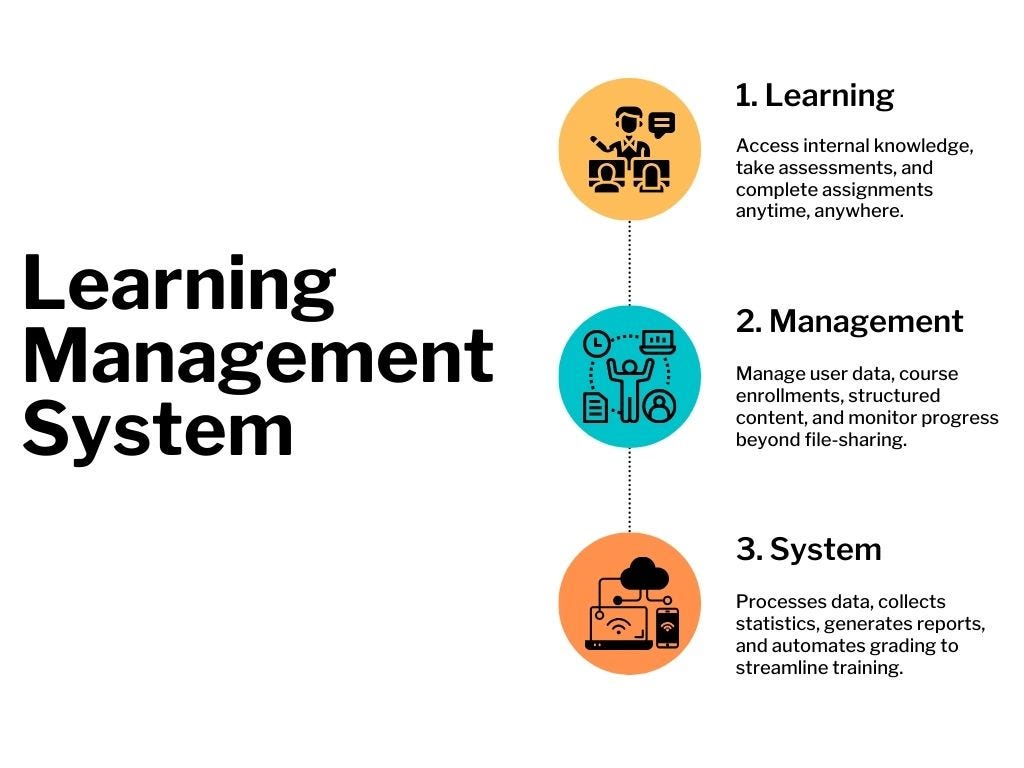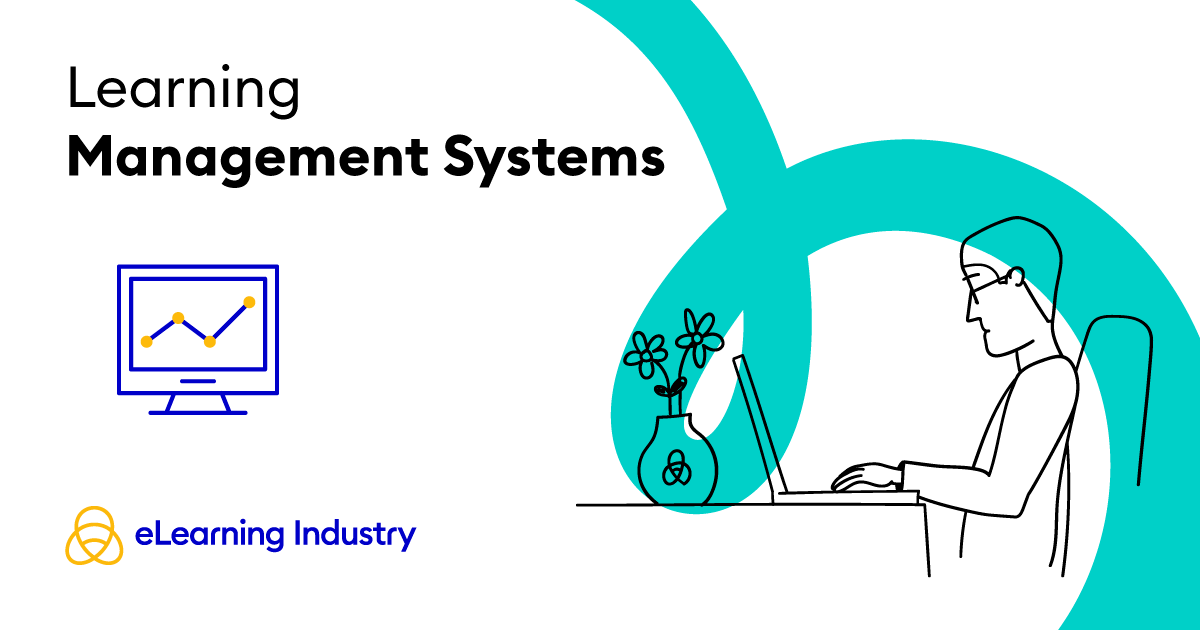Picking the very best Knowing Management System for Your Company
Choosing the optimal Discovering Administration System (LMS) for your company is a diverse decision that needs careful factor to consider of numerous aspects. From specifying precise understanding purposes that resonate with your critical vision to reviewing individual experience, each variable plays a critical duty in the total effectiveness of the system. In addition, recognizing assimilation capacities and ensuring scalability for future requirements can not be neglected. As organizations aim for effectiveness and growth, the choice of an LMS becomes progressively substantial. What are the vital factors to consider that can influence your decision-making process?
Define Your Knowing Purposes
Defining clear discovering purposes is vital for the successful application of a Discovering Administration System (LMS) These objectives act as a roadmap, leading the advancement of content, evaluations, and general training techniques within the LMS. By developing particular, quantifiable, achievable, relevant, and time-bound (CLEVER) goals, companies can ensure that the discovering experiences are aligned with their strategic goals and student requirements.
Reliable knowing purposes ought to encapsulate what students are expected to know or be able to do upon completion of a training course or training program. This clearness not just aids in material development but also helps with the examination of student progression and the overall efficiency of the LMS. Learning Management System Singapore. Well-defined purposes allow stakeholders to evaluate whether the selected LMS capabilities and attributes line up with their academic goals.
Assess Individual Experience
Once discovering goals have actually been developed, examining customer experience becomes an essential following action in picking an ideal Discovering Administration System (LMS) Customer experience encompasses the overall satisfaction and simplicity with which learners interact with the system. A well-designed LMS ought to promote instinctive navigation, guaranteeing that individuals can locate programs, materials, and support effortlessly.
To evaluate customer experience, consider carrying out usability testing with a depictive sample of end-users. Secret aspects to evaluate include the LMS's user interface layout, availability attributes, mobile compatibility, and the clearness of directions given.
Furthermore, review the availability of support resources, such as tutorials and aid facilities, which can boost the user experience. The responsiveness of client assistance is also vital; prompt aid can substantially alleviate disappointments that customers might encounter. Ultimately, selecting an LMS that prioritizes user experience not just improves the finding out procedure yet additionally cultivates greater interaction and fulfillment amongst learners.

Evaluate Integration Capabilities
Acknowledging the relevance of smooth capability, evaluating integration capabilities is essential when choosing a Knowing Administration System (LMS) An efficient LMS ought to help with interoperability with existing systems, such as Human Resource Management Systems (HRMS), Customer Relationship Monitoring (CRM) systems, and various other academic tools. This integration enhances information circulation, minimizes management concerns, and guarantees a cohesive learning setting.
When analyzing an LMS, take into consideration the kinds of combinations offered. Look for Application Programming Interfaces (APIs), Solitary Sign-On (SSO) capabilities, and pre-built connectors that improve combination processes. Furthermore, verify the LMS's capacity to incorporate with third-party tools, such as material libraries or assessment systems, which can substantially enrich the understanding experience.

Take Into Consideration Scalability and Adaptability
As companies develop, the capacity of a Knowing Management System (LMS) to range and adapt ends up being increasingly vital. A scalable LMS can fit development in find more info individual numbers, course offerings, and material without endangering efficiency or customer experience. As services increase, whether with boosted workers, new places, or diversified training requirements, the LMS should effortlessly grow along with these changes.
Adaptability is equally crucial; an effective LMS needs to support different finding out modalities, such as online, mixed, and mobile learning. This versatility permits organizations to react rapidly to arising fads in training and development, making sure that they can offer appropriate and interesting knowing experiences - Learning Management System Singapore. Furthermore, the system needs to provide adjustable attributes, enabling organizations to tailor the LMS to their certain needs and branding
Moreover, a versatile LMS needs to integrate easily with existing tools and systems, promoting a natural learning community. Therefore, when choosing an LMS, it is vital to analyze not just its existing capabilities but also its prospective to grow and adapt in positioning with the company's calculated goals and evolving discovering demands. This insight can significantly enhance the long-term viability of the picked LMS.
Testimonial Prices and Budgeting
When examining a Source Discovering Monitoring System (LMS), examining expenses and budgeting is important to make sure that the financial her explanation investment lines up with the organization's tactical objectives and financial capabilities. Organizations ought to start by determining the overall expense of possession, that includes licensing costs, implementation expenses, upkeep, and any kind of added costs such as training and technological assistance.
It is crucial to contrast various LMS choices, as rates designs can differ considerably amongst suppliers. Some systems may supply a subscription-based model, while others might bill an one-time charge. Organizations should likewise take into consideration the scalability of the LMS; as they grow, the price structure may transform, influencing lasting budgeting.

Verdict
Selecting a suitable Knowing Administration System (LMS) is necessary for accomplishing organizational understanding purposes. Inevitably, the right LMS offers as a crucial device in promoting an efficient knowing environment and driving business success (Learning Management System Singapore).
Selecting the optimum Understanding Administration System (LMS) for your organization is a multifaceted choice that needs cautious consideration of numerous components.Specifying clear knowing objectives is crucial for the effective implementation of a Learning Monitoring System (LMS)Once discovering objectives have actually been established, assessing customer experience ends up being a vital next action in selecting an appropriate Understanding Administration System (LMS)As companies develop, the capacity of a Discovering Management System (LMS) to range and adjust ends up being increasingly crucial.Selecting a proper Knowing Monitoring System (LMS) is necessary for attaining business understanding objectives.